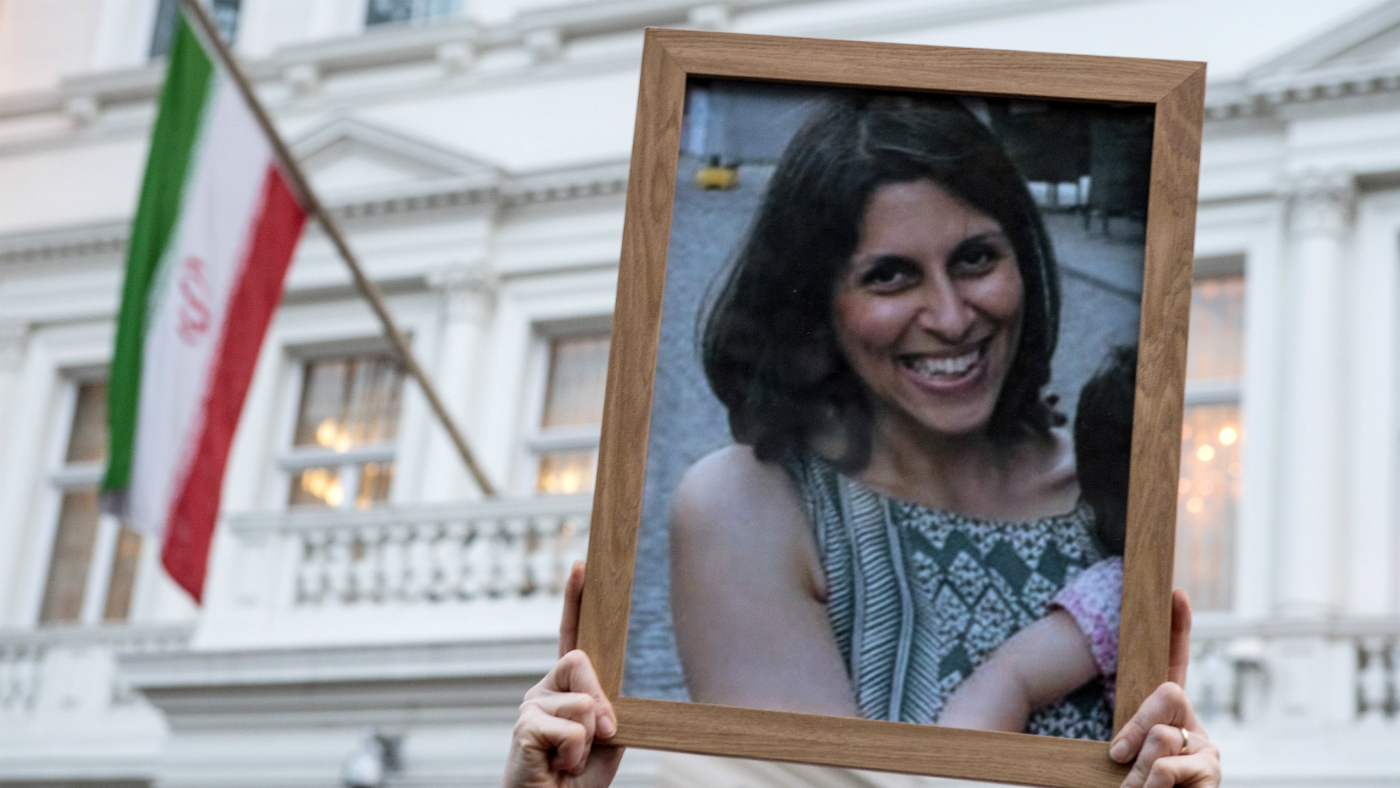British mother jailed in Iran loses final legal appeal
UK government urged to step up demands for Nazanin Zaghari-Ratcliffe to be released from Tehran jail

A free daily email with the biggest news stories of the day – and the best features from TheWeek.com
You are now subscribed
Your newsletter sign-up was successful
Iran's supreme court has ruled against an appeal from a British-Iranian mother sentenced to five years for national security offences.
Nazanin Zaghari-Ratcliffe, 38, a project manager with the Thomson Reuters Foundation, was arrested by Revolutionary Guards last April, while visiting Iran with her two-year-old daughter. She was found guilty on non-specific charges related to national security in September 2016.
She has maintained her innocence throughout the 13 months she has spent in jail in Tehran's notorious Evin prison.
The Week
Escape your echo chamber. Get the facts behind the news, plus analysis from multiple perspectives.

Sign up for The Week's Free Newsletters
From our morning news briefing to a weekly Good News Newsletter, get the best of The Week delivered directly to your inbox.
From our morning news briefing to a weekly Good News Newsletter, get the best of The Week delivered directly to your inbox.
Her husband Richard says yesterday's decision means the family, who live in London, have now exhausted all their legal options.
He told The Guardian: "I hadn't had great hopes for the supreme court appeal. Now, realising that that's it, that all options are gone… in the middle of an election cycle, it's hard to get attention on Nazanin's case."
Although the exact reasons behind Zaghari-Ratcliffe's arrest and conviction remain unclear, the Guardian reports she has been accused "of attempting to orchestrate a 'soft overthrow' of the Islamic Republic".
An Iranian news agency reportedly affiliated to Iran's supreme court also said she was a spy.
A free daily email with the biggest news stories of the day – and the best features from TheWeek.com
Ratcliffe said it was "still nonsense that even at this stage Nazanin still does not have firm details of the charges against her".
He added that he believed it was beholden on the UK government to attempt to negotiate her release.
"We've had a year, the legal process is finished, so I think the government needs to step up, find a way to visit her, say that she's innocent and call for her release publicly," he said.
"As her husband, I can say Nazanin is innocent until I am blue in the face. I have spent a year doing it. But it makes a clear difference that the government hasn't. It indulges the whispers."
The Foreign and Commonwealth Office said it was "deeply concerned" over Zaghari-Ratcliffe's conviction.
A spokesman added: "Iran continues to refuse the UK access to her. The Prime Minister and Foreign Secretary have both raised Mrs Zaghari-Ratcliffe's case with their counterparts in Iran.
"We continue to press the Iranians for access and for due process to be followed."
Iran does not recognise dual nationalities and those detained cannot receive consular assistance, says Sky News, adding: "Zaghari-Ratcliffe's family say Iran's Revolutionary Guard tried to get her to confess on camera that she trained and recruited spies."
Kate Allen, director of Amnesty International UK, said the decision was "bitterly disappointing".
She said: "Lest we forget, Nazanin is a prisoner of conscience who shouldn't be behind bars at all, never mind for five years.
"It's now vitally important that the UK government start doing far more on Nazanin's case."
-
 The Olympic timekeepers keeping the Games on track
The Olympic timekeepers keeping the Games on trackUnder the Radar Swiss watchmaking giant Omega has been at the finish line of every Olympic Games for nearly 100 years
-
 Will increasing tensions with Iran boil over into war?
Will increasing tensions with Iran boil over into war?Today’s Big Question President Donald Trump has recently been threatening the country
-
 Corruption: The spy sheikh and the president
Corruption: The spy sheikh and the presidentFeature Trump is at the center of another scandal
-
 Will increasing tensions with Iran boil over into war?
Will increasing tensions with Iran boil over into war?Today’s Big Question President Donald Trump has recently been threatening the country
-
 Epstein files topple law CEO, roil UK government
Epstein files topple law CEO, roil UK governmentSpeed Read Peter Mandelson, Britain’s former ambassador to the US, is caught up in the scandal
-
 Iran and US prepare to meet after skirmishes
Iran and US prepare to meet after skirmishesSpeed Read The incident comes amid heightened tensions in the Middle East
-
 Which way will Trump go on Iran?
Which way will Trump go on Iran?Today’s Big Question Diplomatic talks set to be held in Turkey on Friday, but failure to reach an agreement could have ‘terrible’ global ramifications
-
 Israel retrieves final hostage’s body from Gaza
Israel retrieves final hostage’s body from GazaSpeed Read The 24-year-old police officer was killed during the initial Hamas attack
-
 China’s Xi targets top general in growing purge
China’s Xi targets top general in growing purgeSpeed Read Zhang Youxia is being investigated over ‘grave violations’ of the law
-
 Panama and Canada are negotiating over a crucial copper mine
Panama and Canada are negotiating over a crucial copper mineIn the Spotlight Panama is set to make a final decision on the mine this summer
-
 Iran unleashes carnage on its own people
Iran unleashes carnage on its own peopleFeature Demonstrations began in late December as an economic protest